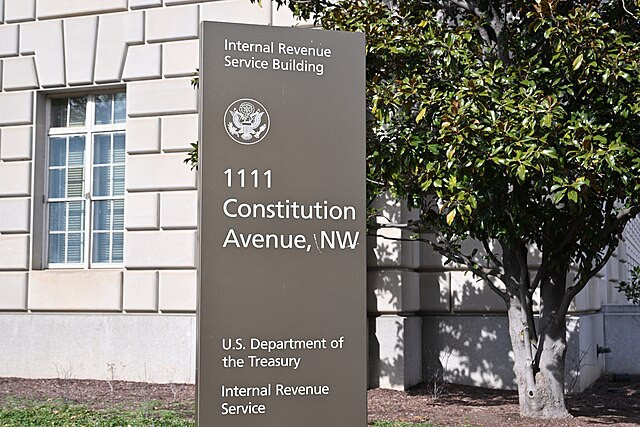The Internal Revenue Service has finalized an agreement to share taxpayer information with U.S. Immigration and Customs Enforcement, marking a significant shift in federal enforcement strategy and a controversial expansion of President Donald Trump's immigration crackdown. The deal, signed Monday by Treasury Secretary Scott Bessent and Homeland Security Secretary Kristi Noem, permits ICE to access confidential tax data to locate and deport individuals living in the United States without legal authorization.
According to a 15-page memorandum of understanding submitted in court filings, ICE will provide the IRS with names and addresses of individuals it suspects have violated immigration laws. The IRS will then cross-reference those names against its internal taxpayer database to verify identities and address details. Many undocumented immigrants register with the IRS and pay federal taxes under individual taxpayer identification numbers (ITINs), often as a demonstration of good faith that may support future legal status.
"The bases for this (memorandum of understanding) are founded in longstanding authorities granted by Congress, which serve to protect the privacy of law-abiding Americans while streamlining the ability to pursue criminals," a Treasury spokesperson stated.
The agreement follows a Supreme Court ruling on Monday that expanded Trump's authority to expedite certain deportations using legal frameworks dating back to the 18th century. Together, the developments mark a new chapter in Trump's increasingly aggressive approach to border enforcement and domestic immigration policing.
Critics of the IRS-ICE data-sharing pact argue that it undermines legal protections that ensure taxpayer privacy. "The IRS has gone back on its duty to protect taxpayer information from improper disclosure," said Nandan Joshi, an attorney at Public Citizen, which is representing immigrant rights groups in a legal challenge to the arrangement. "If allowed to stand, this agreement will provide a roadmap for federal law enforcement to gain access to confidential taxpayer information without obtaining a court order as required by law."
A federal judge declined to issue an emergency order to halt the data sharing, but a hearing on the broader case is scheduled for next week. In filings defending the agreement, the Department of Justice wrote that the arrangement "is lawful" and contains sufficient guardrails to comply with the federal tax code. "Each request must be made consistent" with existing statutes, the document said, and ICE must "ensure the proper handling, transmission, safeguarding, and security" of taxpayer data.
The agreement also allows for the use of artificial intelligence tools by ICE to analyze taxpayer information. However, the IRS must be notified prior to deployment to ensure compliance with data privacy laws, according to the document.
Todd Lyons, acting director of ICE, defended the partnership at the Border Security Expo in Phoenix on Tuesday. Working with Treasury and other departments is "strictly for the major criminal cases," Lyons said, adding that the arrangement is meant to target those "hiding in plain sight" and "collecting benefits they aren't entitled to."
Nonetheless, advocacy groups warn of chilling effects. The NYU Tax Law Center issued a statement Monday arguing that "it is difficult to see how the IRS could release information to DHS while complying with taxpayer privacy statutes." The organization warned that IRS officials who approve improper disclosures could face civil or criminal sanctions.
IRS officials insist that no data has been handed over to ICE yet. A senior privacy officer at the IRS affirmed in a sworn affidavit Monday that the agency had not transferred any taxpayer information to DHS since Trump took office. Still, critics remain concerned about what this precedent could mean for the confidentiality of tax records and the willingness of undocumented immigrants to comply with federal tax laws.
Earlier this year, Noem asked Bessent to loan IRS criminal investigators to support immigration enforcement, referencing the agency's expanded capacity following the now-reduced $80 billion funding boost granted under the Inflation Reduction Act.






